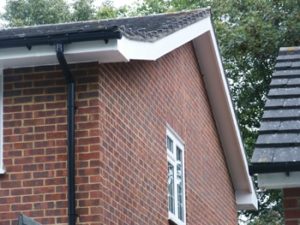
29
junhoWhat's The Current Job Market For Fascia Board Repair Professionals?
Fascia Board Repair: A Comprehensive Guide
Fascia boards play an essential function in the structural integrity of a home. They are the long, straight boards that run along the lower edge of the roofing system; they serve both functional and aesthetic functions. In time, fascia boards can suffer from damage due to the aspects, bugs, or poor drain systems. This post intends to offer an extensive understanding of Fascia Board Repair (mouse click the next site), detailing important details on recognizing damage, repair methods, and maintenance tips for homeowners.
Understanding Fascia Boards
Fascia boards are normally made from wood, vinyl, or aluminum. Their main function is to support the bottom row of roofing system shingles and hide the rafters, hence providing a clean and finished appearance to the roofline. Moreover, fascia boards likewise play a vital role in protecting your home from water damage by assisting to direct rainwater away from your house through seamless gutters.
Why Repair Fascia Boards?
Damaged fascia boards can lead to a wide variety of problems, including:
- Water damage: Allowing wetness to penetrate the roof structure, leading to mold and structural decay.
- Insect intrusions: Damage can supply entry points for pests like squirrels or bugs.
- Aesthetic concerns: Cracked, deformed, or peeling fascia can diminish a home's curb appeal.
Recognizing Damage
Before continuing with repairs, it is essential to determine the condition of your fascia boards. Some typical indications of damage include:
- Rotting wood: Often arising from extended direct exposure to moisture.
- Peeling paint: Indicates moisture intrusion or insufficient sealing.
- Cracks or divides: Can occur due to thermal growth or severe weather condition conditions.
- Drooping or removed boards: May be indicative of structural issues or pests.
Table 1: Common Fascia Board Damage Types
| Damage Type | Description | Cause |
|---|---|---|
| Decaying | Soft, spongy texture | Extended wetness direct exposure |
| Peeling Paint | Flaking or blistering paint | Moisture infiltration |
| Fractures | Visible cracks | Thermal growth |
| Drooping | Board is not lined up correctly | Structural damage |
| Pests | Holes or tunnels in the board | Entry by rodents/insects |
Fascia Board Repair Techniques
Fixing fascia boards involves several methods based upon the type and level of damage. Below are efficient techniques for fascia board repair.
1. Minor Damage: DIY Repair
For minor damages, homeowners can typically handle repairs with fundamental tools.
Products Needed:
- Wood filler or epoxy
- Paint or sealant
- Sandpaper
- Putty knife
- Primer (if repainting)
Steps:
- Assess Damage: Identify the level of damage and identify if the entire board needs replacement or if repairs are sufficient.
- Tidy Area: Remove any debris or loose paint.
- Fill Gaps: Apply wood filler or epoxy to fractures or holes using a putty knife.
- Sand Smooth: Once dry, sand the fixed area to produce a smooth surface area.
- Paint/Seal: Apply guide and paint to match the fascia.
2. Substantial Damage: Board Replacement
If a fascia board is severely harmed, a total replacement might be necessary.
Materials Needed:
- New fascia board (wood, vinyl, or aluminum)
- Nails or screws
- Hammer or drill
- Security goggles and gloves
- Primer and paint (if wooden)
Steps:
- Remove Damaged Board: Carefully get the harmed fascia using a pry bar or saw, ensuring not to interrupt surrounding materials.
- Step and Cut: Measure the brand-new board to the very same length as the old one and cut accordingly.
- Connect New Board: Position the new fascia board and secure it with nails or screws, ensuring it is flush versus the roofline.
- Complete: Paint or seal the new board to secure against moisture.
3. Professional Help
For substantial damage or house owner unpredictability, employing a professional contractor may be the very best option. A qualified contractor can assess the circumstance accurately and guarantee that any repairs or replacements are up to market standards.
Maintenance Tips for Fascia Boards
To extend the life of fascia boards and avoid future damage, think about the following maintenance suggestions:

- Regular Inspection: Check fascia boards at least when a year for signs of damage.
- Clean Gutters: Ensure gutters are routinely cleaned up to avoid water from pooling or overruning onto fascia boards.
- Seal and Paint: Apply sealant or paint every few years to safeguard wooden fascia boards from moisture.
- Trim Overhanging Branches: Prevent physical damages from falling branches by keeping surrounding trees trimmed.
Frequently asked question Section
Q1: How often ought to I check my fascia boards?A1: It is advisable to
check your fascia boards at least once a year, specifically after heavy storms or seasonal changes. Q2: Can I paint over peeling fascia?A2: Peeling
paint ought to be scraped off, the area must be sanded, and any underlying damage needs to be resolved before repainting. Q3: Is it necessary to replace the whole fascia board if it's damaged?A3: Not always; minor damage can frequently be fixed with filler, but comprehensive damage might call for replacement. Q4:
What materials are the very best choices for fascia boards?A4: Wood is standard and aesthetically pleasing; however, vinyl and aluminum are more durableand resistant to rot and insects. Fascia board repair is a vital element of home maintenance that substantially affects the total health of the roof and structure. By recognizing damage early, utilizing effective repair methods, and sticking to maintenance ideas, homeowners can secure their home from pricey repairs in the future. Whether opting for DIY techniques or seeking professional assistance, understanding the importance of fascia boards and their maintenance is important for any property owner.


Reviews